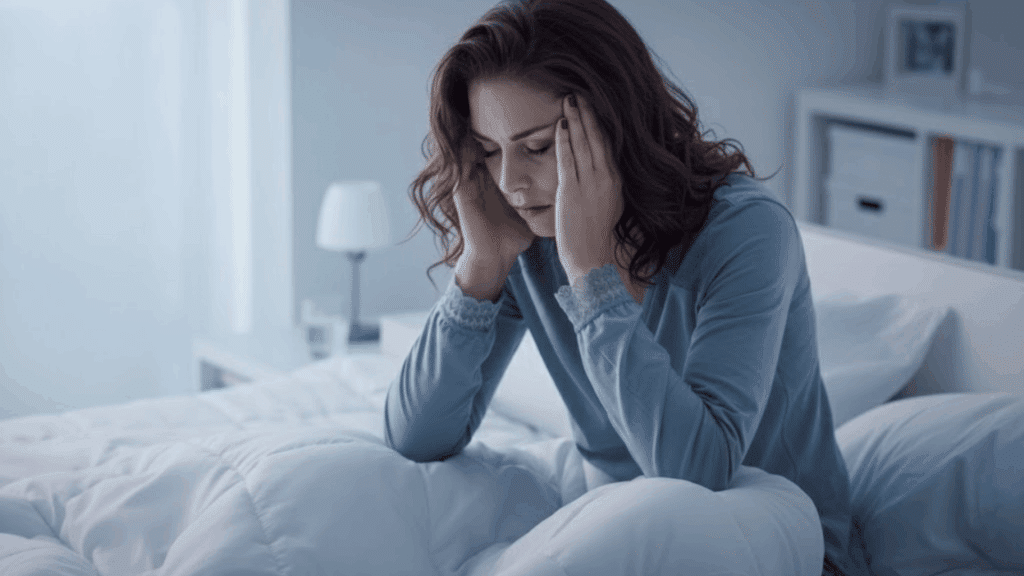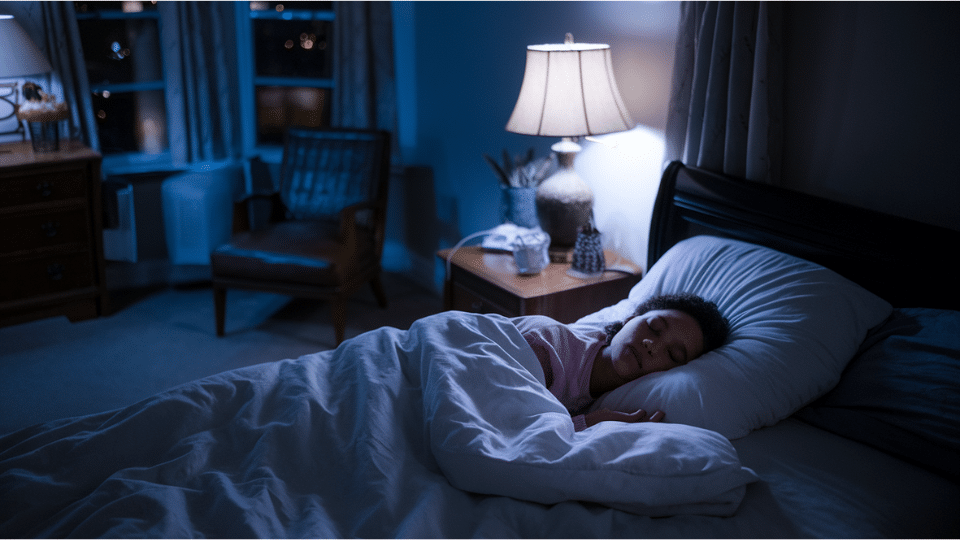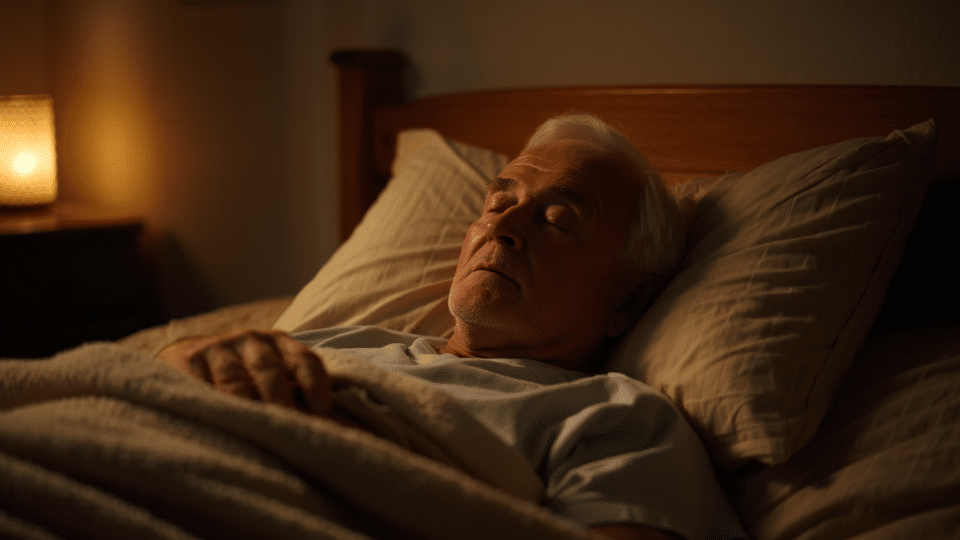I know how terrifying it feels to wake up in the middle of the night with your heart racing, struggling to breathe, and thinking something terrible is happening.
I’ve been there too, and it can feel like your body is in danger. But here’s the truth: panic attacks, even while you’re asleep, can’t kill you.
In this blog, I’ll explain why panic attacks feel so intense, what’s really happening in your body, and how to handle them.
We’ll also talk about the difference between panic attacks and heart attacks, what can trigger nighttime panic, and what steps you can take to prevent future attacks.
What is a Panic Attack?
A panic attack is a sudden wave of intense fear that triggers strong physical reactions. According to medical guidelines, a panic attack includes four or more of these symptoms:
| Symptoms | Description |
|---|---|
| Fast or pounding heartbeat | A sudden, strong heartbeat that can feel like your heart is racing or skipping beats. |
| Sweating | Excessive perspiration, even in cool environments, is due to adrenaline release. |
| Shaking or trembling | Involuntary body tremors or muscle quivers are caused by heightened nervous system activity. |
| Shortness of breath | Difficulty breathing or feeling like you can’t get enough air. |
| Chest pain or discomfort | Tightness, pressure, or aching that can mimic a heart attack. |
| Nausea or stomach upset | Digestive distress or “butterflies” in the stomach. |
| Dizziness or lightheadedness | Feeling faint, unsteady, or as if the room is spinning. |
| Feeling detached from reality | A sense of unreality or being disconnected from oneself or surroundings (depersonalization). |
| Fear of losing control | Overwhelming worry about “going crazy” or being unable to stop the sensations. |
| Numbness or tingling | Pins-and-needles sensations in hands, feet, or face. |
| Chills or hot flashes | Sudden changes in body temperature, often alternating between hot and cold. |
| Fear of dying | A strong, irrational sense that something catastrophic or fatal is about to happen. |
These attacks can happen at any time, even when you’re asleep. When they occur at night, they’re called nocturnal panic attacks. You might wake up suddenly in a state of terror, not knowing what’s happening.
Why Panic Attacks Feel Life-Threatening (But Aren’t)
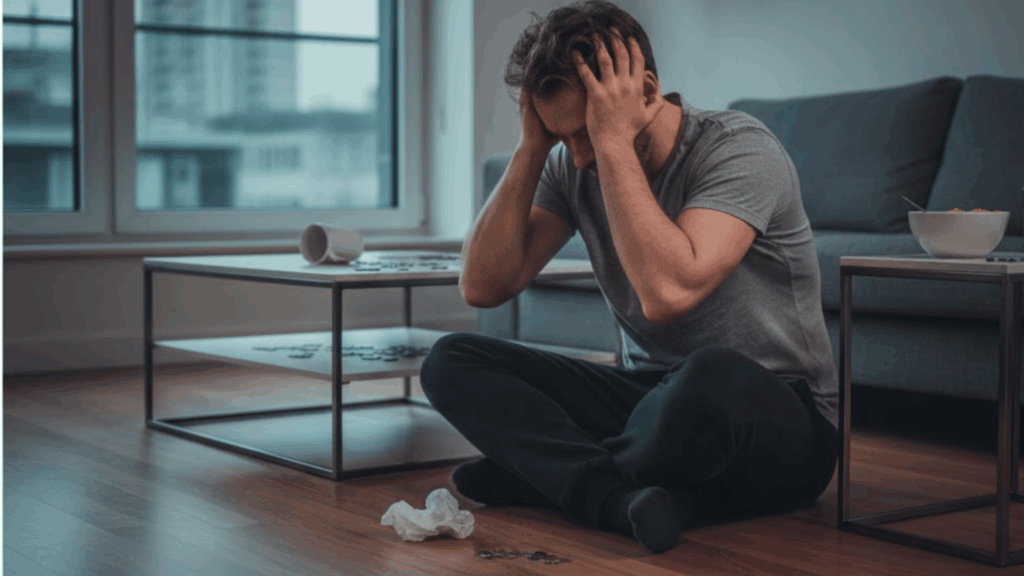
The National Institute of Mental Health, the Cleveland Clinic, and other trusted health organizations confirm that panic attacks cannot kill you.
When a panic attack hits, your body goes into “fight or flight” mode. This is an ancient survival response designed to protect you from danger. Your brain releases adrenaline, which causes:
- Your heart beats faster
- Your breathing to speeding up
- Blood rushes to your muscles
- Your senses become sharper
The problem? Your brain has triggered this alarm when there’s no real danger. The physical sensations are very real, but they’re not harmful.
Your heart won’t stop. You won’t suffocate. The symptoms might make you feel faint, but even if you do faint, it’s not dangerous.
Your body has built-in safety mechanisms. When you hyperventilate during a panic attack, you might feel dizzy, but your body will naturally regulate your breathing to prevent any real harm.
Can Panic Attacks Kill You If You Have Heart Problems?
This is where things get a bit more complex. If you have existing heart disease, panic attacks can put temporary stress on your cardiovascular system.
Research has found connections between panic disorder and heart conditions. Studies from 2005 and 2008 showed that people with panic disorder may have a higher risk of coronary heart disease over time. However, the panic attack itself doesn’t directly cause death.
Important note: If you experience chest pain that radiates to your jaw or shoulder, or if your symptoms don’t improve after 30 minutes, get medical help right away. It’s better to get checked out than to assume it’s just anxiety.
What Causes Panic Attacks at Night?
Panic attacks during sleep can feel especially confusing because they wake you from rest. Common triggers include:
- Chronic stress or anxiety that builds up during the day
- Sleep deprivation or poor sleep quality
- Caffeine or alcohol consumed before bed
- Traumatic experiences or PTSD
- Major life changes or transitions
- Certain medications or their side effects
The interesting thing about nighttime panic attacks is that they can happen even during deep sleep. Your brain doesn’t need to be actively worrying for a panic attack to occur. Sometimes the body’s stress response gets activated on its own.
Panic Attack vs. Heart Attack: How to Tell the Difference
This is one of the most searched questions, and for good reason. The symptoms can overlap, making it hard to know what you’re experiencing.
| Symptom | Panic Attack | Heart Attack |
|---|---|---|
| Pain type | Sharp, stabbing, moves around | Heavy pressure, crushing feeling |
| Duration | 10-30 minutes | Lasts longer than 30 minutes |
| What triggers it | Stress, anxiety, no warning | Often during physical activity |
| Response | Gets better with calming down | Gets worse or stays the same |
| Other signs | Usually no nausea or sweating in the arms | May have jaw pain, arm pain, and cold sweat |
When in doubt, always seek medical attention. Medical professionals would rather check you out and find nothing serious than have you ignore warning signs of a real heart problem.
Can Repeated Panic Attacks Harm You Over Time?
While a single panic attack won’t hurt you, living with frequent panic attacks can affect your health in other ways:
Physical effects:
- High blood pressure from constant stress
- Trouble sleeping or insomnia
- Weakened immune system
- Digestive problems
Mental and emotional effects:
- Developing panic disorder (fear of having more attacks)
- Avoiding places or situations where attacks have happened
- Depression or feeling hopeless
- Social isolation
A 2016 review of cardiovascular research found that ongoing anxiety may contribute to heart problems over many years. This doesn’t mean panic attacks will kill you, but it does mean that managing anxiety is important for overall health.
What to Do During a Panic Attack
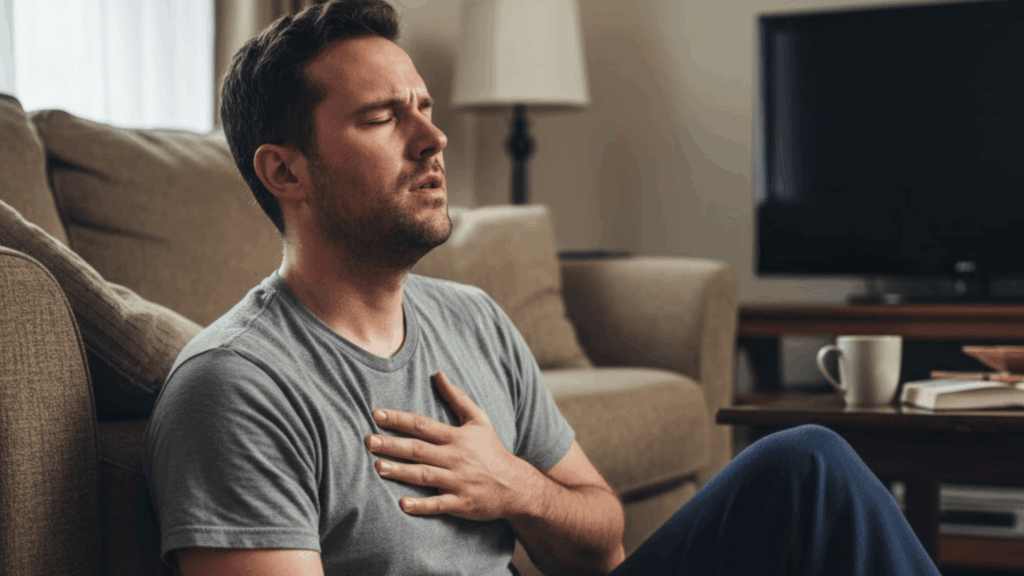
When panic strikes, whether at night or during the day, these steps can help:
1. Stay Put and Ride It Out
When a panic attack starts, resist the urge to escape or fight it. Staying where you are helps your body learn that the sensations will pass naturally.
Most panic attacks peak within 10–30 minutes. By staying calm and grounded, you teach yourself that the feelings, though intense, are temporary and not dangerous.
2. Focus on Your Breathing
Slow, steady breathing is one of the most effective ways to regain control during a panic attack. Inhale gently through your nose for four counts, hold your breath for four counts, and exhale slowly through your mouth for four counts. Repeat this cycle until your heart rate slows and your body begins to relax.
3. Use the 5-4-3-2-1 Grounding Technique
This simple mindfulness exercise helps bring your focus back to the present moment. Identify five things you can see, four things you can hear, three things you can touch, two things you can smell, and one thing you can taste.
Engaging your senses interrupts spiraling thoughts and gently grounds you in your immediate surroundings.
4. Picture a Safe, Calm Place
Close your eyes and visualize a space that makes you feel safe and peaceful—a quiet beach, a forest path, or your favorite cozy spot at home.
Focus on the details: the colors, sounds, and sensations. Visualization helps redirect your brain from fear to calmness, lowering anxiety and easing your body’s stress response.
5. Remind Yourself It’s Temporary
During a panic attack, remind yourself that what you’re feeling is temporary and not life-threatening. Repeating phrases like, “This is uncomfortable, but it will pass,” can help shift your mindset from fear to acceptance.
Recognizing that your body’s panic response will subside naturally helps reduce the intensity and duration of the attack.
How to Prevent Panic Attacks at Night
If you’re dealing with frequent nighttime panic attacks, several treatments can help:
Therapy options:
- Cognitive Behavioral Therapy (CBT): This teaches you to recognize anxious thoughts and change how you respond to them. It’s one of the most effective treatments for panic disorder.
- Exposure Therapy: Gradually facing feared situations in a safe environment helps reduce panic over time.
Medication options:
- SSRIs (like Zoloft or Prozac): These antidepressants can reduce anxiety and prevent panic attacks. They take a few weeks to work.
- Benzodiazepines (like Xanax): These work quickly to calm anxiety but are usually for short-term use due to dependence risk.
Lifestyle changes:
- Keep a regular sleep schedule
- Limit caffeine, especially after 2 PM
- Avoid alcohol before bed
- Practice meditation or relaxation exercises
- Get regular exercise (but not right before bed)
- Create a calming bedtime routine
When to See a Doctor
| Situation | When to Take Action |
|---|---|
| Panic attacks are happening frequently | Contact a healthcare provider for evaluation and treatment options. |
| You’re avoiding normal activities because of fear | A sign that anxiety may be interfering with daily life, professional support can help. |
| You’re feeling depressed or hopeless | Could indicate underlying depression or panic disorder; seek mental health care. |
| Panic attacks are affecting your work or relationships | Therapy can help manage triggers and improve emotional well-being. |
| You’re using alcohol or drugs to cope | These can worsen anxiety symptoms; reach out for medical guidance. |
| Chest pain that spreads to your jaw, neck, or arm | Call emergency services immediately, may signal a heart attack. |
| Trouble breathing that doesn’t improve | Seek emergency care right away to rule out serious respiratory or cardiac issues. |
| Loss of consciousness | Emergency medical attention is needed to assess potential causes. |
| Symptoms lasting longer than 30 minutes | Go to the ER. Extended panic symptoms should be evaluated urgently. |
Better to get checked and find out it’s anxiety than to ignore a serious medical issue.
At the End
Panic attacks can feel terrifying, especially when they wake you up from sleep. But I want you to remember this: they can’t kill you.
What’s happening is your body’s way of reacting to stress and fear, even when no real danger exists. I know how real the fear feels, but it will pass.
With time, practice, and the right support, you can regain control and start sleeping peacefully again. If panic attacks are affecting your daily life or keeping you up at night, don’t face it alone.
Reach out to a mental health professional today. Help is available, and you deserve to feel calm and safe again.




